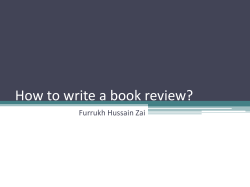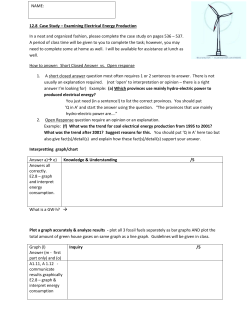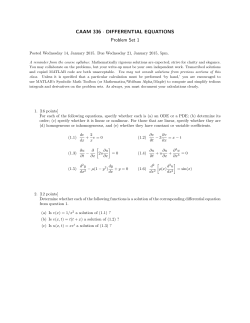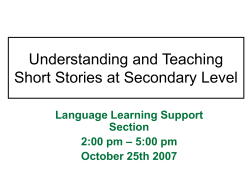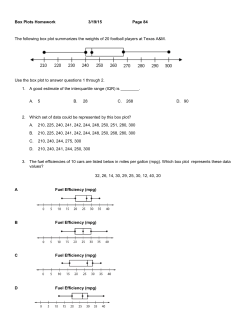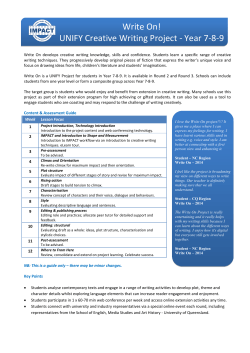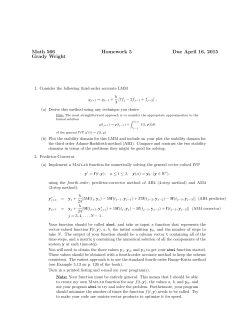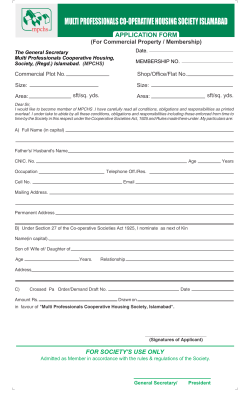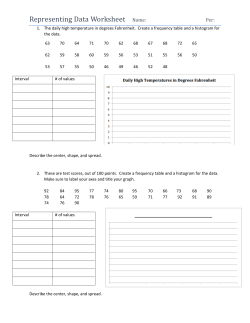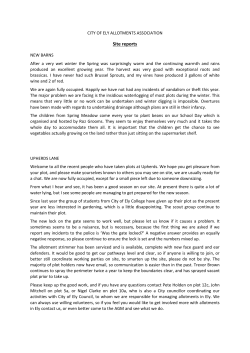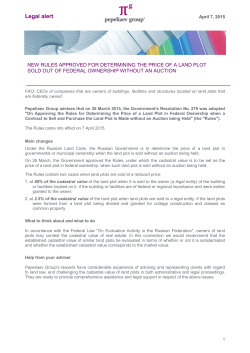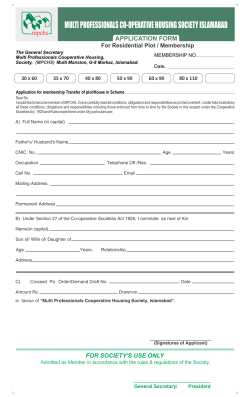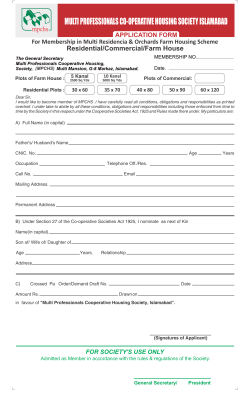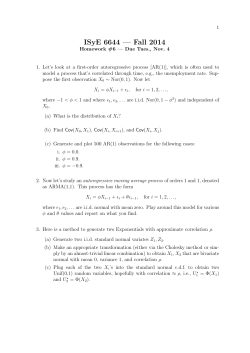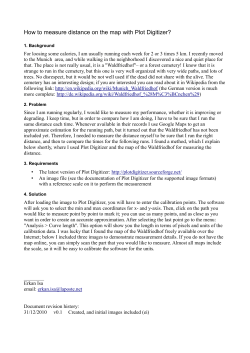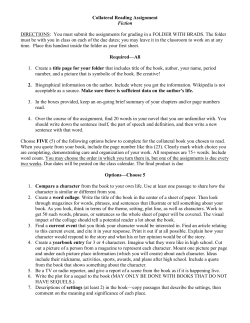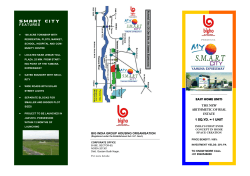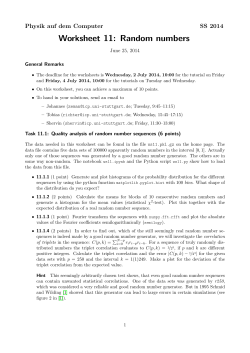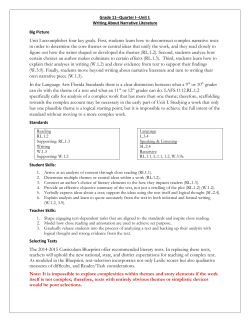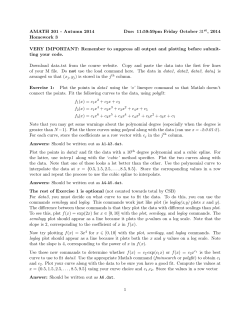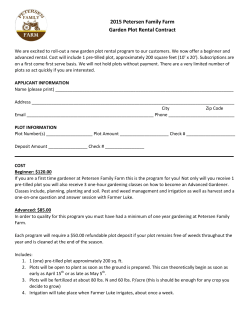
How to Write a Book Review
How to Write a Book Review A book review is a discussion that involves two components, summary and evaluation. Step One – Reading: This is the most important step in writing a book review. As you read, keep a pencil in hand and mark key passages that you might quote or paraphrase later. Record your thoughts or impressions of particular points, examples, scenes, and dialogues. Note relationships between concepts and identify the main ideas or plot. Consider the following questions as you read: What is the genre? Knowing the genre of your book will help you to evaluate the author’s success in conveying certain images, concepts or arguments. What is the topic? Knowing this will enable you to familiarize yourself with important terminology, concepts, debates or other authors. What is the author’s position? Try to discern the author’s overall position and not simply his or her supporting points. Remember that even authors of narratives, plays, or poetry may have an overarching position or stance they are attempting to communicate. What is the context and who is the intended audience? For whom was this book originally written, and when? Did elements of the author’s biography affect his or her understanding of the topic? You may wish to consult external resources to answer these questions. Are the author’s ideas clear and well-argued? Your evaluation must be of the author’s arguments and discussion about the topic, and not of the topic itself. Does the author make any assumptions? What types of sources or information does the author consult? Has he or she considered the discussion from all angles? How are the literary elements developed? If your book is a piece of fiction, consider how the author has developed the plot, characters and setting. What are the main themes and motifs of the book and how are they integrated? Do you see any problematic areas within the author’s writing style or in the literary elements? What are your impressions and reactions? Considering your reactions will help to determine whether the author has accomplished his or her objectives in writing. Focus on your reactions to the book and not simply to the general topic. Do you agree with the author’s position and points? Why or why not? Step Two – Organizing and Writing: As you begin to organize all of your answers to the above questions, remember that your review will be both a summary and an evaluation. ©2012 The Writing Centre - Tyndale University College and Seminary Summary Make it concise. Before delving into detail about the story or points, try to distill the author’s entire position down into one statement—his or her thesis. Next, identify the author’s supporting points. Looking at the table of contents may help you to understand the thought development and structure of the author’s argument. For fiction, consider the overall structure and pattern of plot, character and theme development. Make it relevant. Every descriptive element you include must contribute to your overall evaluation of the book. Part of your description may incorporate relevant aspects of the context or the author’s biography. Evaluation Prioritize. Decide which of your thoughts, impressions and critiques is worth including in your review. Limit your evaluations to the most important and relevant ones. For example, pointing out that the author made a grammatical mistake may not be as important as affirming or questioning the author’s thesis or supporting points. Be objective. While you critique or praise any particular aspect of the book, assume an objective stance. In other words, aim to represent the author fairly. Discuss both the strengths and the weaknesses that the book demonstrates, and maintain a polite and academic tone even while explaining your criticisms. In the end, this will demonstrate your own credibility as a reader and critic. Genre-Specific Considerations: Fiction: Do not retell the story. Plot What is the structure of the plot? Are there sub-plots? Is plot emphasized over character, setting, or another element? Character How are the characters developed, if at all? What is the significance of each character? Setting Is the setting intended to be real or fictional? When is the story set and how does time affect the setting? How does the setting contribute to the character, plot and theme development? Style What is the narration style? (e.g., point of view, focalization, dramatized narration) What figurative and rhetorical devices does the author employ? Are they effective? How does the author integrate dialogue? Theme What are the major themes of the book? How do the themes emerge? What is the purpose of each theme? (e.g., to teach, to entertain, to emote) History: On which time period or historical figure does the book focus? What sources did the author use? How detailed is the account? What type of history is emphasized? (e.g., social, political, religious) What is the style of writing? How much interpretation has the author employed? How are dates, maps, charts, illustrations and other images used? Are they effective? Is there any incorrect or dubious information? ©2012 The Writing Centre - Tyndale University College and Seminary
© Copyright 2025
